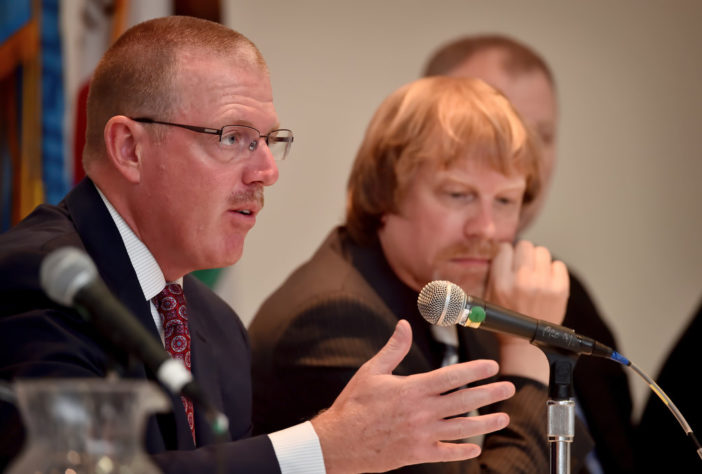On Tuesday night, I attended a workshop in Anaheim to hear speakers discuss Proposition 64. The speakers were from the cannabis industry, as well as regulators and law enforcement from Washington, Oregon and Colorado.
It was information overload, to say the least. I couldn’t write fast enough.
The statistics, research and analysis thrown out by all the speakers were thought-provoking and something everyone should think about before voting on this initiative.
I am, however, a realist. There are very few people who really care about the statistics.
I’ll just give you the high points:
– Proposition 64 isn’t about legalizing marijuana. It has pretty much been decriminalized for years. Proposition 64 is about commercializing the sale of marijuana. It’s all about the money. A lot of money. Like hundreds of millions of dollars. People are going to get rich off of it, and even the government will get its cut.
– People will die because of easily accessible potent marijuana. There have been increases in fatal accidents since retail marijuana sales have been commercialized. Even the American Automobile Association has come out against the proposition. It will make our roads less safe. That’s easy logic. Easy access to dope means more inebriated drivers.
– Government bureaucracy will grow. The resources needed to regulate the industry are substantial. Police departments will be expected to handle compliance issues. City, county and state governments will be tasked with regulation. Training for all of those agency employees will require a lot of money and time.
– Marijuana advertisements will be in your face all the time. These ads also will be in your children’s faces. From television commercials, to advertisements to billboards, the free market will do its best to get in your face. This is the environment you children will grow up in.
– There will be absolutely nothing you can do about intrusive smoke related to marijuana consumption. If your neighbors decide to light up, just keep your air conditioning on and close the windows. You have no rights to clean pot-free air in your own home.
– Commercialized marijuana sales will do nothing to create more livable, safer communities. Denver has all but written off its once thriving downtown 16th Street mall. According to Denver’s mayor, it is in large part due to commercialized marijuana.
– Seattle also has seen a rise in crime after marijuana commercialization was legalized. In urban areas, there seems to be a trend: more weed, more homeless issues.
– Commercialized marijuana will not improve public health. Despite the numerous issues said to be helped by medical marijuana, we all know there can’t be that many sick people. The rate of newborns with THC in their bloodstream has gone up. This has created the need for huge public health awareness campaigns. Those cost a lot of money.
– Let’s say your local community wants to opt-out. Your city will have to be prepared to battle with a cannabis industry with a lot of money. You may not have a choice. The law is the law. An election is needed to opt-out, and that takes money and campaigning. Lawyers will make a lot of money.
– The black market still thrives, even in states where sales are legal. If you can sell it cheaper than the stores, people will still line up on the street corner to deal. A lot of resources are needed to address black market sales. That takes more people and money.
During the question and answer session I asked what I thought was a simple question: “Has commercialized marijuana made for safer, more livable communities?”
The cannabis industry representative said there have been great results.
A pastor of a local church is thankful for a retail outlet next to his church. The armed security guards have cut down on crime in the neighborhood. Oh, and the government made a lot of tax money.
That’s the best he could come up with.
I suggest anyone who is on the fence about Proposition 64 take another hard look. Read some of the articles that have been reported in local news publications and in those states where commercialized sales have been legalized.
Then ask yourself: “Is that what I want for us?”
I, for one, will be voting no.
 Behind the Badge
Behind the Badge



